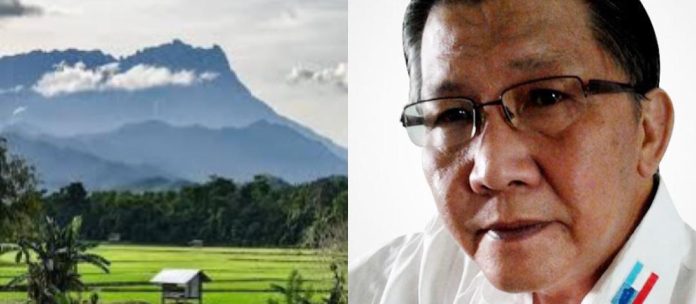KOTA KINABALU: Sabah activist Datuk James Ligunjang opined that there is a need to increase rice production in Sabah to meet the growing population’s demands and the rise in tourist arrivals.
He said reviving the Lembaga Padi Sabah to increase areas for cultivation and production of rice is a good solution.
Outlining several measures that can be considered to boost rice production, Ligunjang said Lembaga Padi Sabah should collaborate with relevant district offices to identify suitable areas in Sabah for rice cultivation and provide assistance to local farmers to increase cultivation.
“The adoption of advanced machinery, quality seeds, and efficient irrigation systems should be facilitated by Lembaga Padi Sabah to optimize the production process,” he said in his latest social media positing.
According to Ligunjang, ,collaboration with research institutions can also help improve the quality and productivity of rice crops.
The former Petagas assemblyman also suggested that investments in research and development be intensified with regard to the development of disease-resistant or high-yield rice varieties as well as innovative farming techniques.
He said there was a need to provide training and education to farmers on best practices, crop management, and modern farming techniques that can enhance their skills and knowledge.
Lembaga Padi Sabah can organise workshops, seminars, and training sessions to educate farmers on improved cultivation methods, he added.
“Offering financial support, subsidies, or incentives to farmers can encourage them to increase rice production.
“This could include financial assistance for purchasing improved seeds, machinery, or irrigation systems, as well as subsidies for fertiliser or other inputs,” he said.
Ligunjang said that by implementing these measures and reviving Lembaga Padi Sabah, along with support from various stakeholders, Sabah is likely to achieve a significant increase in rice production.
Last month, India, which is the world’s largest exporter of rice, announced a ban on exporting non-basmati white rice in a bid to calm rising prices at home and ensure food security.
On Friday, Padiberas Nasional Bhd (Bernas) announced that price of imported white rice has been increased to RM3,200, up from RM2,350 per metric tonne.
In a statement, Bernas said the price adjustment for imported white rice across its warehouses nationwide is in line with the current global pricing on imported white rice.


